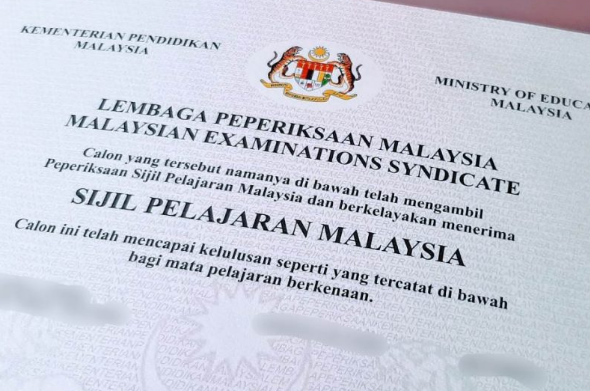IGCSE offers exams twice yearly and a choice of over 70 subjects, whereas SPM is annual with compulsory core subjects in Malaysia.
Table of Contents
Curriculum Scope and Flexibility
The curriculum scope and flexibility of the International General Certificate of Secondary Education and the Sijil Pelajaran Malaysia are designed to meet different education needs and aspirations. Students and parents choose either of these options based on the amount of freedom in elective subjects and the extent to which the curriculum aligns with future goals.
IGCSE: Broad and Customizable
The IGCSE curriculum offers a wide variety of subjects – there are more than 70 subjects in the curriculum, including unique ones such as Environmental Management and Global Perspectives . Students are thus able to tailor their education to their interests and future career plans, with such broad coverage allowing profound specialization on the discipline of sciences, humanities, or technical subjects. For example, a student who aspires to digital marketing as a career can choose Business Studies, Information & Communication Technology, and Art & Design in IGCSE to prepare a good mix of creative and business knowledge in the field.
SPM: Structured and Focused
On the other hand, the SPM curriculum structures education with compulsory subjects, such as Malay Language, English, Mathematics, and History . Such a structure ensures that every student receives uniform education and is called a product of national quality standards at the end. It also allows all students to be prepared primarily for local job opportunities and higher education, as requirements in the Malaysian society play a vital role to be well versed in the local cultural context and history. For example, not only is it a requirement for SPM graduation, but to also be accepted to Malaysian universities, one must pass History and Malay Language.
Freedom of Subject Choice in Selection
Another aspect in which these mediums differ is the freedom to choose any combinations of subjects without forceful selection of compulsory ones. SPM preparation requires passing grades in the core subjects – this is where IGCSE provides individual freedom of choice of subjects. It allows students to structure their learning path primarily based on their individual strengths and interests, which may enhance performance and interest in these subjects. Most students focus on their knowledge on only a selected number of subjects in order to deepen their knowledge. The number of IGCSE subjects chosen by a student usually ranges between five and fourteen, with the combination helping to pursue better specificity in higher education. As such, the broader scope and international recognition of IGCSE open up avenues for students to apply to universities worldwide, whereas SPM remains more in a regional scope but offers more recognition in the Malaysian system for which students will be better prepared.

Frequency and Timing of Examinations
The International General Certificate of Secondary Education offers a highly flexible examination schedule with two main sessions per year, either in May and November. This allows students to pace their study time more effectively and to take the examinations in two separate sessions to improve their performance in certain subjects . For instance, using the June session of the IGCSE, a student who might have weakness in Mathematics could choose to include this subject in that period. With Mathematics behind him or her, the student might decide to devote only on passable subjects in the November examinations maximising his or her chance in getting higher grades.
SPM – one examination window
On the other hand, SPM only conducts the annual examination, usually in the month of November. However, regardless of whether a student is ready, he or she has to sit for all examinations at the same time. The year-end examinations are, therefore, very crucial because the results determine whether the students can further their education and career. For example, students know the whole year that they must pass the November SPM examination in order to be certified and to be able to finalise plans for further studies.
General stress level
The regularity of the examinations is crucial for preparing and reducing the stress in conducted. Since the frequency and effectiveness of the examinations can affect how pupils prepare, IGCSE pupil might be inclined to have lesser pressure in every examination session due to the possibility they have another chance for improvement at a later stage. In addition, they are not pressurised to maximise their performance in all papers because they can do so later in the year. Hence, they are more prepared for the examinations and thus tend to score higher marks as well as the opportunity to take and pass the examinations at once.
Meanwhile, SPM pupils will only have one opportunity to prepare themselves before the examination and they need to make sure that they are ready for the examination in all subjects. Thus, they will fell more stress and must be prepared for the examination in November with fewer opportunities each year to perform. For their part, students taking the IGCSE could use the June sitting as an indicator and decide which to improve before the November sitting. In addition, the SPM students generally take extra September and October classes to prepare more for the November examinations and to pass the exam.
Recognition and Pathways for Further Education
The International General Certificate of Secondary Education is widely recognized by universities and employees across the planet. The learners’ achievement in the programme allows assuming that Cambridge IGCSE is a best-seller among international students who dream about an academic or career path across the UK, the USA, Canada, and Australia. Typically, students can apply for undergraduate courses abroad more easily due to the programme’s broad alignment with the international higher education standards, which were set by Cambridge International Examinations, the Sokoto Accord of 1994, and UNESCO’s General Conference in 1993 . For instance, learners who are planning to study engineering can pass IGCSEs in Physics, Chemistry, and Higher Mathematics that are required by most top technology institutes across the globe. By passing these subjects, students also maximize their chances of getting into a university.
SPM: Preferred Qualification for Local Success
The Sijil Pelajaran Malaysia qualification is the primary condition for accessing state and private higher educational institutions in Malaysia. Indeed, the qualification is the most rewarding in Malaysia’s employment market and is intended for a wide range of local applicants. The set of disciplines and the types of questions highly correspond with the long-term and short-term educational objectives of the country, such as pursuing excellence in Malay and appreciation for Malaysia’s history. If local applicants wish to enter Malaysian public universities, nothing can be more relevant than preparing well for the Malay language and History, two required SPM subjects.
Educational planning
The decisions on which examination to pass need to be planned strategically by the students and their families. The students who wish to access universities abroad can have a profound edge when passing the IGCSE. The SPM can be the best choice for the students who are planning to study in Malaysia’s universities. The examination systems have implications on the students’ longer-term careers, as the present task is not the only educational aspiration. The students should make their choices based on longer career goals and their preferred institutions or prospective employers’ standards.

Assessment and Grading System
IGCSE: A Comprehensive Grading System
The IGCSE system utilizes a dual grading system that spans from A* to G, with the highest grade achievable being an A*. The grading system also incorporates a numeric scaling from 9 to 1, with an A*+ grade equivalent to a 9. This form of grading is more comprehensive and holistic in nature, and is designed to allow universities and employers to develop a broad understanding or student performance with more precise academic assessment.
The assessment type for IGCSE comprises coursework, oral tests, practical exams, and final examinations. This wide variety of assessment types allows a student to be evaluated based on various capacities and aptitudes. As an illustration, in the case of Art & Design ,a student’s work is assessed on presentation as a final piece, alongside presentation as a portfolio where the student’s drawings and sketches taken during the course of examination can be evaluated.
SPM: Structured Grading in Line with Standardized Testing
The SPM grading system is a simplified system that ranges from A+ to G, with the best possible grade being an A+. Unlike IGCSE, there is much single form of end-of-year examination. This grading system’s primary value function is to evaluate the student’s ability to remember, memorize, as well as apply the Malaysian national curriculum. IGCSE does not utilize course work.
An example is in the case of a subject heads of science and heads of math that are paper-based. These tests are based on four and five essay-type or structured questions that require a student to use impeccable problem-solving and analytical skills in responding to the questions.
Comparing Assessment Types: Theoretical Analysis
The IGCSE goes a long way to ensure that a wide variety of assessment methods are used, including coursework and practical. This system is particularly suited for students who perform better in oral or practical tests as opposed to written examinations as the only form of evaluation. The SPM is highly suited for individuals who thrive in the traditional end-of-year examinations where learning and accurate recall are the only variables tested. The motivation of the SPM system lay in the fact that students can memorize dense information and apply it in examinations.
Duration and Age of Completion
One of the biggest pros of the International General Certificate of Secondary Education is that students can finish their secondary education earlier than with the traditional school system. Typically, the program takes two years to finish – however, depending on how quickly the student passes the various courses and takes exams, they can end their education in a matter of weeks. For an example of a student that is motivated, if they start taking their IGCSE courses at age 14, they could take their examinations by age 16. Following the IGCSE’s structure, the student could move on to pre-university or vocational training, ending their compulsory school education much earlier. This option is especially beneficial for students who are eager to start university or a specific education course as soon as possible.
In comparison, the Sijil Pelajaran Malaysia follows a more standardized duration. Students start their coursework for the SPM at age 16 years and must complete the examination at age 17 following five years of secondary education. This period is set in accordance with the Malaysian education system’s overall structure, which is designed to give a comprehensive education across multiple different compulsory subjects. In contrast, the age of completion of the IGCSE can vary dependent on when the student decides to take their final examinations. This provides some leeway for students who wish to peruse other activities or take a break before formally ending their education.
The duration of the IGCSE and SPM, and the associated age of completion, might have a significant impact on a student’s life and educational future. A person who has finished their IGCSE might gain time that could be used for gaining practical experience through internships, or for starting A-level courses, giving them a head start in further education. Conversely, a student who has finished their SPM gains a more extended period within the structured school system. This ensures that they are more thoroughly prepared to tackle the academic challenges that advanced education might bring. Thus, a prospective student should consider their personal development and how they prefer to end their secondary education should be carefully considered before choosing between the IGCSE and the SPM.

